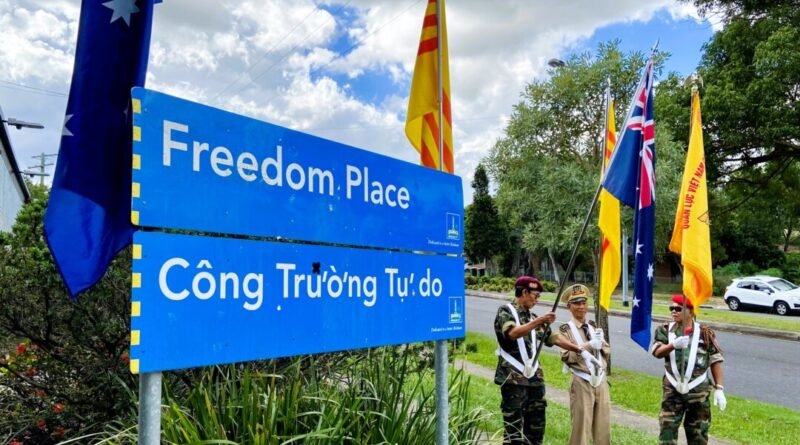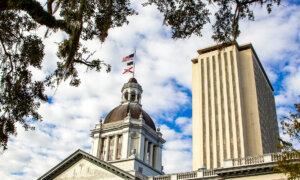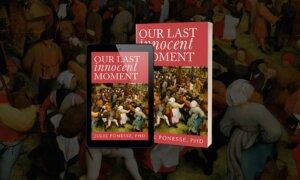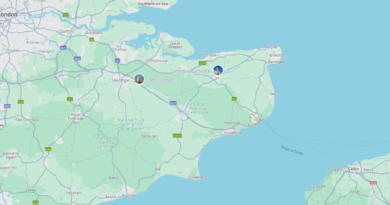Community Remembers Saigon on Anniversary of Communist Takeover, Vowing to Never Forget
April 30 marked the anniversary of the Fall of Saigon and the end of the anti-communist South Vietnamese government.
High school student Truc Doan stands solemnly in uniform alongside a veteran at Brisbane’s “Freedom Place” in the multicultural suburb of Inala.
Together, they raise the Australian and South Vietnam flags to the tune of “Advance Australia Fair,” as local police, dignitaries, and community members stand.
Soon the South Vietnamese anthem blares—dubbed the “Anthem of Free Vietnam”—as both flags steadily reach their peak.
It is April 30, the anniversary of the 1975 Fall of Saigon, which marked the end of the Vietnam War, as well as the last official vestiges of the anti-communist Republic of Vietnam (South Vietnam).
Under the weight of domestic pressure, then-U.S. President Richard Nixon began the process of withdrawing troops from the South.
The defeat spurred a mass humanitarian crisis over the years with 800,000 Southerners fleeing the country—many of whom perished at sea or were taken by pirates.
However, those who made it would disperse worldwide, building thriving communities in major cities across Australia, Europe, and the United States.
These “Little Vietnams” can often feel like a whole other world, with bustling fresh food markets, pho noodle restaurants, and senior citizens gathered around playing Chinese chess.
They also serve as outposts of defiance against the ruling regime in Vietnam.
Yellow South Vietnamese flags, adorned with three red horizontal stripes, are a familiar sight in Australian suburbs like Cabramatta, St. Albans, and Inala.
A Duty to Understand
Seventeen-year-old Truc Doan, a second-generation migrant who studies at Forest Lake State High School, says she joins these events so she can represent her parents.
“My parents, my mom and dad, were involved with the Vietnam War. My mum suffered from her experiences in Vietnam and had to flee, and so did my dad,” she told The Epoch Times.
“I want to know more about my background, and the history of the Vietnam War.”

Mary-Ann Nguyen-Pham is the vice president of the Vietnamese Community in Australia’s Queensland Chapter. She’s also a third generation migrant.
“I will never fully understand what [my parents] went through. But I feel like part of my duty is to try to understand what happened to them, and what led to our family coming here to Australia,” she told The Epoch Times.
Ms. Nguyen-Pham says its important to let the younger generations understand the full impacts of communism.
“As part of my my role, I’m actually looking to start up a bit of a youth committee … just to help get our Vietnamese Australian youth a little bit more engaged.”
Cold War Suspicions a World Away From Today’s Youths
As the Cold War years fade into the distance, attitudes towards communism and socialism shift, particularly among younger generations who have never experienced the ideologies first-hand.
Consistent polling has shown an increasing wariness or disappointment with capitalism, which has in turn, spurred interest in alternatives.
In 2021, the Institute of Economic Affairs conducted a survey of 2,000 Generation Z and Millennials in the UK to gauge their opinion on their political beliefs.
It found 40 percent of Millennials had a favourable impression of socialism and a similar proportion agreed with the statement that “communism could have worked if it had been better executed.”
It also found 67 percent of respondents said they would like to live in a socialist economic system.
In turn, their attitude towards capitalism was unfavourable with 75 percent saying climate change was a “capitalist problem”—not a problem with industrial production.

About 71 percent said capitalism fueled racism, while 73 percent said it encouraged selfishness, greed, and materialism.
However, the researchers also found that these attitudes were not deeply ingrained and suggested a lack of understanding.
“However, when presented with a diametrically opposed pro-capitalist statement, we often find net approval for that statement too. This suggests that when young people embrace a socialist argument, this is often not a deeply-held conviction. It may simply be the argument they are most familiar with.”
‘Learn the Lessons of the Past’: Community Leader
Dr. Cuong Bui, head of the Vietnamese Community organisation, warns that Vietnamese authorities today are actively enticing second and third generation migrants back to the motherland.
“Because these young people have high scientific and technical qualifications, but do not know—or don’t know enough—about the structures or tactics of the Vietnamese communists,” he told attendees.
“The key to solve the problem is to help young people clearly understand the conspiracy behind Decision 1334. Learn the lessons of the past.”

Centre-right federal Liberal Senator Paul Scarr praised the community for its work in educating Australians about the perils of communism and the millions of victims of the ideology.
To date, it is estimated nearly 100 million people have died as a direct result of communist policies.
“I think, from a political point of view, there is an allure and emotional pull for young people towards communist ideals,” he told The Epoch Times.
“Those ideals sound good on paper, but when one sees the reality those policies implemented, and how they have failed—at great human cost—that one realises that it is not the right path,” he added.
“It’s up to political leaders such as myself and others, to keep having that ideological battle. It is just so important and I feel very intensely about that.”





